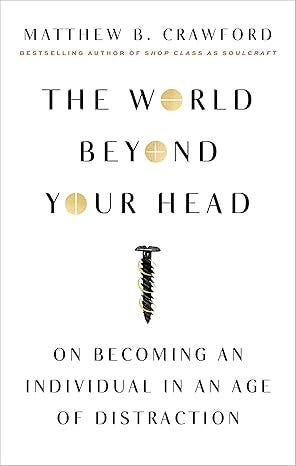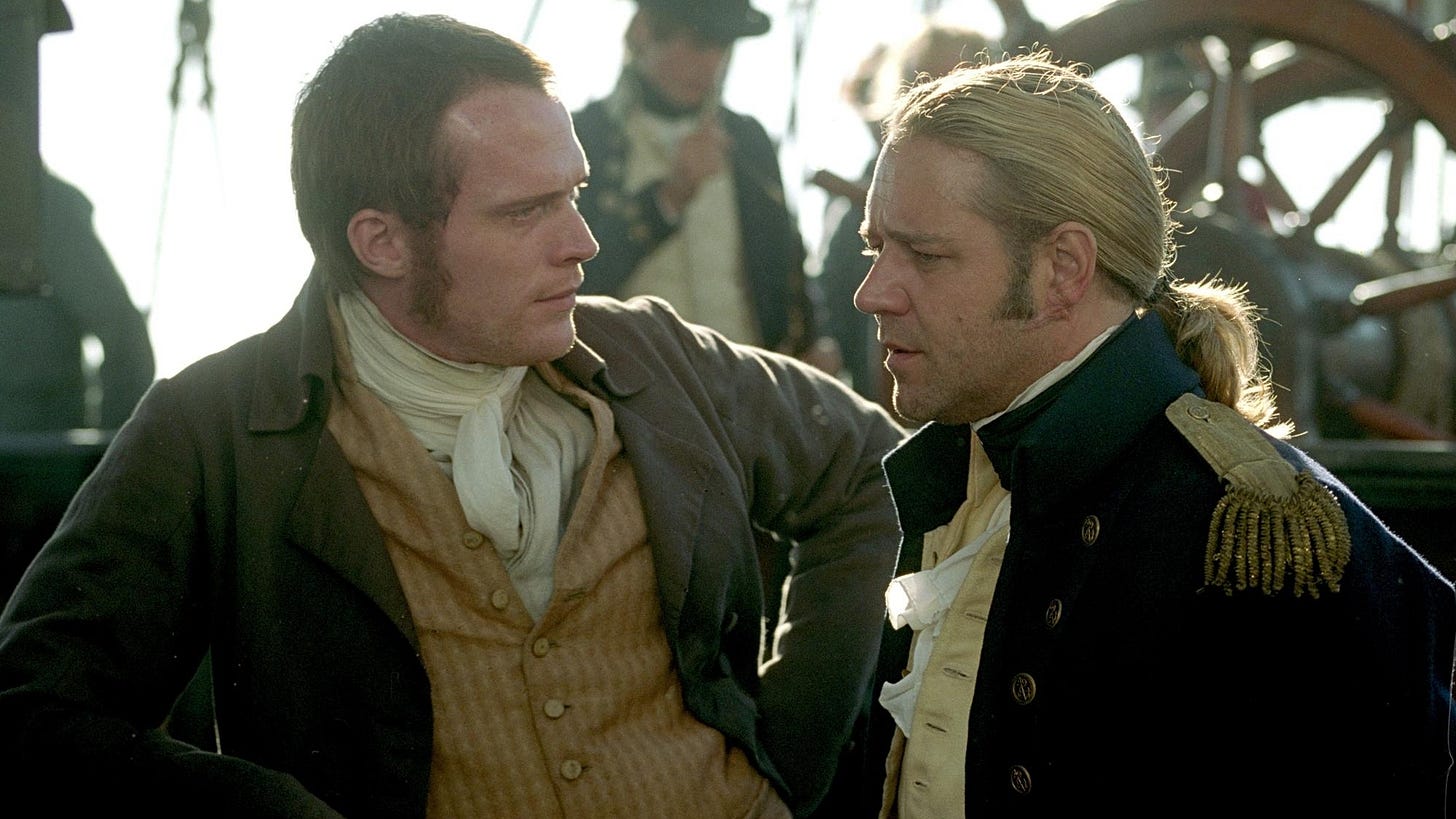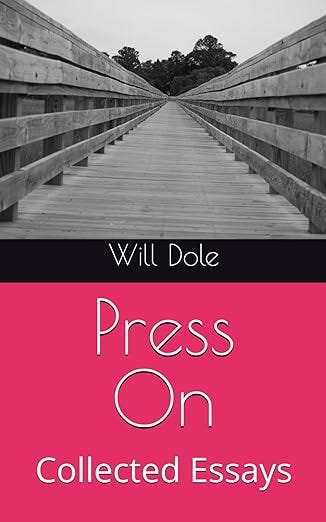I occasionally like to do a little run-down on those things I’m reading and enjoying…or maybe not enjoying. And in this case, I’ll touch on a little beyond reading as well.
Reading
Last year I read Matthew Crawford’s Shop Class as Soulcraft. Sitting with that book was one of the most enjoyable reading experiences I’ve ever had. So for Christmas I put his other books on my wish list.
I finally just started reading The World Beyond Your Head, which is part epistemology, part political philosophy, part social theory. Now, I realize I just lost a whole bunch of you, so let me put it in more compelling terms: in this book, Crawford is calling into question whether we really ought to view ourselves as choice-making machines, and whether the shortest route to immediate gratification is actually the route to living a good—or even happy—life. I’m about half-way through, but so far this is the best book I’ve read all year.
Come June, I’ll be taking a class on faith communication in a town and country context. One of the assigned books for that course is Tex Samples’ book Ministry in an Oral Culture: Living with Will Rogers, Uncle Remus, and Minnie Pearl. This book was both laugh-out-loud funny and frustrating almost to the point of infuriating. When describing rural people and oral cultures, Samples is great. When telling stories, he’s brilliant. When then turning his gaze to the liberal academics and ministers who are his target audience, he starts speaking is DEI talk that was 30 years ahead of his time. It essentially reads: “you need to understand and be more sympathetic toward oral-culture folks…and then learn to speak their language and use those techniques to show them how backward they are, all in the name of Justice.” Hm. Yuck.
Concise Theology has long been a favorite of mine, but I had always just read on a screen with my Logos version. However, when a young man in our church and I started to read through, I purchased the beautiful hardcover edition put out by Crossway in 2020 (linked above).
J.I. Packer has an astounding ability to pack enormous truths into small packages—his economy of words is instructive for me both a a pastor and a writer. These chapters are from 1-4 pages long, and cover the gamut of what you would expect from a systematic theology.
To grab a representative example, here is how Packer tackles the historically fraught question of human responsibility and it’s relationship to the sovereignty of God in salvation:
“It is worth observing that will is an abstraction. My will is not a part of me that I choose to move or not move, like my hand or my foot; it is precisely me choosing to act and then going into action. The truth about free agency, and about Christ’s freeing sin’s slave from sin’s dominion, can be expressed more clearly if the word will is dropped and each person says: I am the morally responsible free agent; I am the slave of sin whom Christ must liberate; I am the fallen being who has it in me only to choose against God till God renews my heart.” (Concise Theology, 102)
Listening
I listen to a number of podcasts on a regular basis, and try to make audiobooks a steady part of my travel diet, as well.
I recently finished listening to Christianity & Liberalism, by J. Gresham Machen. Machen, the founder of Westminster Theological Seminary and the Orthodox Presbyterian Church, wrote this book over 100 years ago. But friend, let me tell you: it feels as relevant today as I’m sure it must have to his contemporaries. His main argument is this: the “liberal Christianity” of the early 20th century was not a new type of Christianity, but was, in fact, a different religion altogether. He was right then, and he’s right now.
I’ll link the Youtube version below, but I’ve been listening on Apple Podcasts to Andrew Huberman’s six-part series with Matt Walker on the subject of sleep.
I’ve been trying to get my sleep figured out this year, in an effort to be more alert and productive during my waking hours—and to hopefully be less disruptive to Andie’s sleep…
Huberman and Walker’s discussion is really helpful (though I only listened to about 45 minutes of the final session, on dreams…that failed to hold my interest). The biggest takeaway for me has been to work toward a consistent go-to-sleep and wake-up time, as well as establishing an evening pre-bed routine to help myself wind-down. Which is to say, I’ve been drinking more tea in the evening and reading more by lamplight.
Watching
I don’t watch a lot of TV or movies. But I did recently watch a documentary, as well a Russel Crowe movie, that I have a few thoughts about.
Some generous friends purchase an annual subscription Canon+. There is a lot of great stuff on there, but my favorite thing we have watched lately is a documentary on the self-proclaimed “lunatic farmer”, Joel Salatin.
Salatin has long been someone I’ve found interesting, as my political and life proclivities veer distinctly toward what Rod Dreher once termed “Crunchy-Con.” Watching the story of how, using regenerative agriculture techniques that are often associated with the “nutty” left, this evangelical Christian farmer has restored health to a landscape in Virginia’s Shenandoah Valley is truly inspiring to me. It seems like a logical and beautiful example of Genesis 1:26-28 at work.
It’s available on Canon, but also on Angel, to which I’ll link here.
It had been a hot minute—by which, I mean way over a decade—since I had watched Master and Commander. I thought my boys were going to really enjoy it; however, I think the realistic war imagery was a little much for them yet—it’s different to watch boys not much older than them fighting against men than it is to watch elves fighting orcs, I suppose. Nonetheless, I enjoyed it more than any movie I have watched in a really long time. Here are three quick reasons:
Well-shot. This movie is beautiful and sweeping in it’s presentation. It also makes you feel like you are aboard HMS Surprise.
Patriotic tension. There is a palpable tension between the two main characters: Captain Jack Aubrey (played by Russell Crowe) and the ship’s surgeon, Stephen Maturin (played by Paul Bettany). Crowe is patriotic in the classic sense—duty toward king and country. Maturin is idealistic (I do not mean this in a negative sense), and cares about the how and why of what they do—though one sometimes wonders if his ideals are completely realistic with the early 19th century. But it seems to fit. (As an aside, I couldn’t help but think of a similar dynamic between the characters played by John Wayne and William Holden in John Ford’s 1959 movie, The Horse Soldiers.)
There often seems to be an implicit paradox when it comes to executing a mission—are the methods we’re using compromising the character of the mission itself? This movie does a great job of helping you feel and consider that tension.
A picture of leadership. As implied in the name of the movie, Aubrey truly is master and commander of his ship. He is in command of every scene he enters. Crowe’s presence as an actor fills the screen, and that is symbolic of Aubrey’s filling the room or the deck. But this isn’t a command that is merely based on hierarchy and rank. As is seen in one tragic subplot (which I will not spoil), this authority is achieved via competence.
Also, and again this may seem a paradox, but that authoritative competence is also the basis of true rapport. How many leaders (or parents) seek to build rapport by being buddies with those in their charge? But that is not the model here. Rather, we see excellence in the given task—in this case, fighting naval battles—building trust. And the men will love a man they trust, to the point of following him to the far edges of the world.
His leadership is also, notably, one of words. I just listened to a fascinating conversation between Aaron Renn and Tanner Greer, in which one of the topics of conversation was how well-trained in elocution were the leaders of past centuries. Which is to say, if you were a public leader, or someone who aspired to such a role, you learned how to use words. Specifically, you learned to speak clearly and persuasively in public. This truth is on full display at multiple points in this film, when the Aubrey character leads through the words he speaks. Not in long or flowery discourses: but in clear, direct, and rousing words.
And that last point reiterates a point the Aubrey character makes in one discussion toward the latter part of the film: men must be led. That truth is illustrated beautifully as we spend time aboard the HMS Surprise. And it’s one our world desperately needs to embrace today.
So, that’s that. A little window into a few of the books, podcasts, and movies that are helping me to stop and think here in this spring of 2025.
And if you’re still reading, let me add one more book for you to consider:
















Share this post